#Roger B. Taney
Explore tagged Tumblr posts
Photo
FRFR




OKAY YOU ALL TALK ABOUT THE COLD WAR, SURE
BUT WHAT ABOUT
THE HOT WAR
WHICH IS WHAT I CALL THE BANK WAR COS HOT PEOPLE
Okay I’m not attracted to Biddle, but I had to include him cos Bank War but also he balances the photoset.
Obvious the war was more than Clay & Biddle vs. Jackson & Taney but whatever I do what I want.
Sorry. I had that “Cold War Hot War” idea in my head and just wanted to do something about it before I lost it.
NO BUT SERIOUSLY READ UP ON THE BANK WAR IT’S BIG AND COMPLICATED AND HEATED AND INTERESTING WOW I know who’s side I’m on but yeah.
12 notes
·
View notes
Text
I have an answer for why Pierce said his last name like Purse 👛
It's likely that's just how it's pronounced... The same was the case for Charles Sanders Peirce, who, despite spelling the name slightly differently, pronounced it the same strange way.
What I assumed all along to have been a heavy accent was likely just the proper noun pronunciation, like Roger B. Taney being "Tawny" and John Quincy Adams being "Quinzy."
20 notes
·
View notes
Text
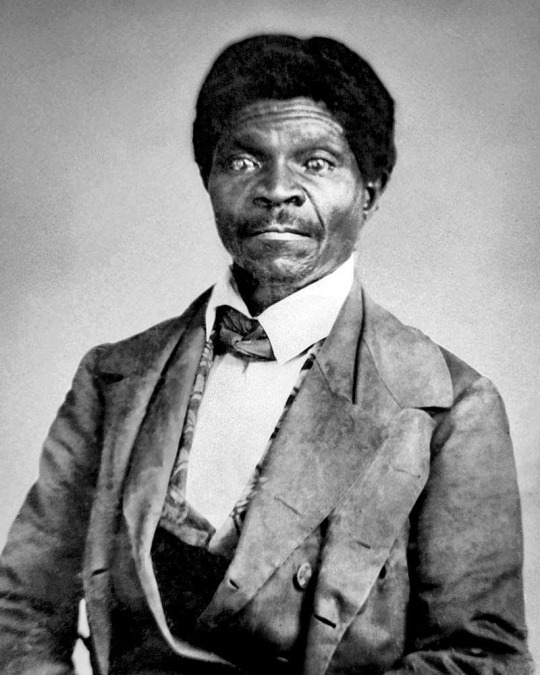
Today In History
Dred Scott was born into slavery in Southampton, Virginia, around 1795, the property of the Peter Blow family. He was given the name “Sam” but took the name of his older brother, Dred, when the latter died.
In 1836, Scott who was approximately 41, married a teenaged slave, Harriett Robinson, at Fort Snelling who was owned by another U.S. Army officer, Major Lawrence Taliaferro of Virginia. Scott and Robinson gave birth to their first child, Eliza, in 1838 and a second daughter, Lizzie, in 1840, and their two children were born free.
In 1843, Emerson died and left his estate to his widow, Irene Sanford Emerson. When Scott offered to purchase his freedom for $300 in 1846, Emerson refused his offer. He then obtained the assistance of two St. Louis attorneys who helped him to sue for his freedom. His 1846 lawsuit was filed in the St. Louis Circuit Court and went to trial in 1847.
Scott lost this case, but later that year he won a second trail. By this point Scott received financial support and legal representation from the sons of Peter Blow, his former owner, who had become anti-slavery advocates, Irene Sanford Emerson’s brother, John Sanford, and her second husband, Dr. C.C. Chaffee, a Massachusetts abolitionist. To all of them the Scott case as an important challenge to slavery.
On March 6, 1857, the United States Supreme Court finally ruled in Dred Scott v Sandford [Sanford was misspelled by a court clerk]. In a 7-2 decision written by Chief Justice Roger B. Taney, the majority of justices said that Scott and all slaves and free blacks were not citizens of the United States and therefore had no standing in the courts. The backlash to this decision strengthened the abolitionist movement and further divided the North and South, leading four years later to the U.S. Civil War.
After he was freed, Dred Scott went to work as a porter in the St. Louis area. He died from tuberculosis in September 1858. Harriett Scott died eighteen years later on June 17, 1876.
CARTER™️ Magazine
#carter magazine#carter#historyandhiphop365#wherehistoryandhiphopmeet#history#cartermagazine#today in history#staywoke#blackhistory#blackhistorymonth#dred scott
87 notes
·
View notes
Note
Has any president ever not been given the oath of office by the chief justice of the supreme court
Yes. The Constitution does not specify who must administer the oath of office to the President and government officials who are required to swear (or affirm) an oath can essentially be sworn in by any federal or state judge or even a notary public.
The oath of office has been administered eight times by someone other than the Chief Justice of the United States -- usually when a Vice President has assumed office upon a President's death and it was necessary to quickly locate somebody who could administer the oath. George Washington was also sworn in by someone other than the Chief Justice at both of his inaugurations. In fact, not only was there no Chief Justice at the time of Washington's first inauguration but there was literally no federal judiciary (and, obviously, no federal judges). The Judiciary Act establishing the Supreme Court wasn't enacted until September 1789 -- almost five months into President Washington's first term -- and that's when the first members of the Supreme Court were nominated and confirmed.
Of course, the Chief Justice of the United States has been the person swearing in the President the vast majority of the time. John Marshall, the longest-serving Chief Justice in American history (1801-1835), administered the oath of office more times than anyone else -- nine times to five different Presidents. However, Chief Justice Roger B. Taney (served from 1836-1864) administered the oath to more individual Presidents than anyone else -- seven times to seven different Presidents. The nation's first two Chief Justices -- John Jay (1789-1795) and John Rutledge (August-December 1795) -- are the only two Chiefs who never administered the oath to a President.
Here is the list of Presidential Inaugurations not conducted by the Chief Justice of the United States along with the person who administered the oath of office: •GEORGE WASHINGTON's 1st Inauguration (April 30, 1789): Robert Livingston, Chancellor of New York (The Chancellor of New York was the presiding judge of the New York Court of Chancery, the highest court in New York State from 1701-1847) •GEORGE WASHINGTON's 2nd Inauguration (March 4, 1793): William Cushing, Associate Justice of the U.S. Supreme Court •JOHN TYLER's Inauguration (April 4, 1841): William Cranch, Chief Judge of the U.S. Circuit Court of the District of Columbia (Tyler assumed office upon the death of President William Henry Harrison. Interestingly, Cranch was the nephew of John and Abigail Adams.) •MILLARD FILLMORE's Inauguration (July 9, 1850): William Cranch, Chief Judge of the U.S. Circuit Court of the District of Columbia (Fillmore assumed office upon the death of President Taylor.) •CHESTER A. ARTHUR's Inauguration (September 20, 1881): John R. Brady, Justice of the New York State Supreme Court (Arthur assumed office upon the death of President Garfield. Brady was the first judge that could be tracked down to administer the oath at Arthur's home in New York City after notification of Garfield's death arrived shortly after midnight on Sept. 20, 1881. After returning to Washington, D.C. on September 22, 1881, Arthur was administered the oath of office again in a formal ceremony by Chief Justice Morrison Waite.) •THEODORE ROOSEVELT's 1st Inauguration (September 14, 1901): John R. Hazel, Judge of the U.S. District Court for the Western District of New York (Roosevelt assumed office upon the death of President McKinley.) •CALVIN COOLIDGE's 1st Inauguration (August 3, 1923): John Calvin Coolidge Sr., Justice of the Peace and Notary Public in Plymouth, Vermont (Coolidge assumed office upon the death of President Harding. Coolidge was staying at his father's home in Vermont when he was notified shortly after midnight on August 3, 1923 that President Harding had died a few hours earlier in San Francisco. Since Coolidge's father was a Notary Public, he administered the oath of office to his son in the sitting room of the family home. After being sworn in by his father, President Coolidge promptly went back to sleep.) •LYNDON B. JOHNSON's 1st Inauguration (November 22, 1963): Sarah T. Hughes, Judge of the U.S. District Court for the Northern District of Texas (Johnson assumed office upon the death of President Kennedy. Johnson was in Dallas with Kennedy when the President was assassinated, and he was sworn in as President aboard Air Force One on the airport tarmac of Love Field before leaving Texas to return to Washington with Kennedy's body.)
#History#Presidents#Presidential Oath of Office#Oath of Office#Presidential Inaugurations#Inaugurations#Swearing-in the President#Presidential Oath#Politics#Chief Justice of the United States#Supreme Court#Chief Justice#Constitution#POTUS#Presidents and Chief Justices#Judiciary#SCOTUS
25 notes
·
View notes
Text
Random people hunger games! Featuring historical figures, Wild Kratts, politicians, and me.

Stephen Douglas being Stephen Douglas. Dang it Kerry

Chris being Chris. Booth being evil. Nixon being relatable. AND IVE GOT A FIRE :D

Charles Sumner and George W. Bush do the right thing. I sleep with Clay and Gore. AND WHO THE FUCK GAVE CHENEY AN EXPLOSIVE?

Caviva! Yay!

Zach and Aviva truce? Never thought I’d see the day. Bernie Sanders x Charles Sumner? And same, Dubya.

Taney drowns me… thinking I was an animal that could breathe underwater? Also dammit Sumner

GOOD JOB BERNIE AND ZACH. Also Booth x Chris?

AGAIN BOOTH X CHRIS. Also Zach being cute

Yay! Chris defeats his enemy and also Roger B. Taney.

NOOOOOOO!
Booth won the hunger games
#henry clay#john c calhoun#andrew jackson#james k polk#stephen douglas#roger taney#al gore#dick cheney#george w bush#richard nixon#chris kratt#aviva corcovado#bernie sanders#john kerry#me#john wilkes booth#hunger games simulator#zach varmitech#charles sumner#sarah polk
18 notes
·
View notes
Text
Antebellum Miscellaneous Casting 2/?
Before i continue i feel like it needs to be said that i actually dont know what any of these peoples acting styles are like, so this is 90% vibes 7% faceclaim and 3% concentration of will, so:
Matthew Daddario as Alexander Hamilton Jr.
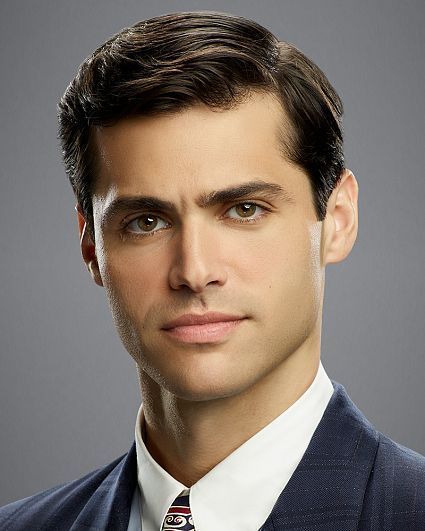
Rebecca Hall as Sarah Polk

Emily Blunt as Lucretia Clay

Evan Rachel Wood as Margaret Eaton
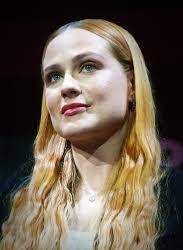
Natalie Dormer as Floride Calhoun

Ben Barnes as Galusha Grow

Adam Driver as Roger B. Taney
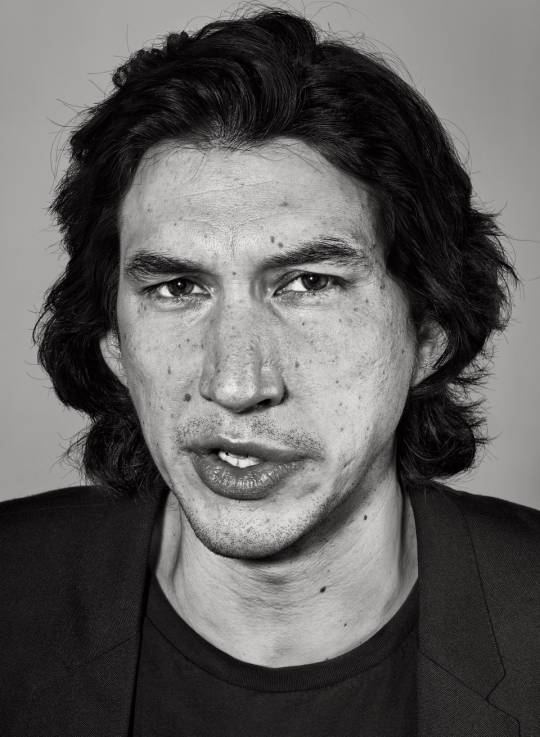
Tom Cruise as John J. Crittenden
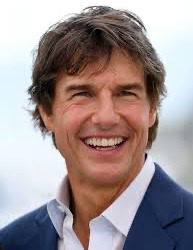
Luke Evans as Lawrence Keitts

Benedict Cumberbatch as Jefferson Davis

Sophie Nelisse as Elizabeth Cady Stanton

Jennifer Lawrence as Varina Davis

Chris Pratt as Horace Greeley
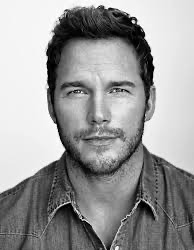
Jared Padalecki as Anson Burlingame
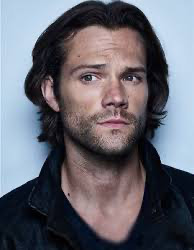
and
Mitt Romney as Franklin Pierce

#franklin pierce#anson burlingame#horace greeley#varina davis#elizabeth cady stanton#jefferson davis#lawrence keitts#john j crittenden#roger taney#galusha grow#floride calhoun#margaret eaton#lucretia clay#sarah polk#alexander hamilton jr#fancast
2 notes
·
View notes
Text
DRED SCOTT DECISION
Dred Scott v. Sandford, 60 U.S. 393, was a landmark decision of the United States Supreme Court that held the U.S. Constitution did not extend American citizenship to people of black African descent, and thus they could not enjoy the rights and privileges the Constitution conferred upon American citizens.
In 1857, the U. S. Supreme Court was tasked with deciding whether Scott, an African American man born into slavery, should be granted his freedom. The justices not only denied Scott’s request, but also took the opportunity to send a chilling message to all African Americans, free and enslaved, that reverberates to this day.
The court held that as members of an inferior race, African Americans were not citizens at all — and, as such, did not even have legal standing to sue. African Americans, as Chief Justice Roger Taney so decisively determined, had “no rights which the white man was bound to respect.”
The Dred Scott decision laid the legal foundation of White Supremacy in America by America’s highest court; SCOTUS which is an acronym for Supreme Colonizers Of The United States. The insidious and poisonous doctrine of White Supremacy is imbued in the social-political-economic structures of American society.

Roger B. Taney
Former Chief Justice of the United States is pictured above
6 notes
·
View notes
Photo

This memorial day, I salute, Sam LoPresti, who left the NHL during WWII to join the US Navy on SS Roger B. Taney. The ship was torpedoed & sunk in '43; LoPresti was one of 29 sailors who survived 42 days lost @ sea in a lifeboat. They were rescued off the coast of Brazil. LoPresti was credited with saving the lives of his shipmates. How? He killed a dolphin with a knife, which was pretty much the only food they had during their ordeal. That's a goalie I'd back check a little harder for
2 notes
·
View notes
Text
Declaration of Rights of the Negro Peoples of the World
The stage was set for the “Declaration of Rights of the Negro Peoples of the World” in 1857. That was when the Dred Scott case, Chief Justice Roger B. Taney declared the decision of the Supreme Court of the United States in the Case of Dred Scott versus John F.A. Sanford. Taney in regard to the ENTIRE AFRICAN RACE as relates to the United States Constitution states: They had for more than a…

View On WordPress
#africa#African#african american history#august 13 1920#convention#declaration of rights of the negro people of the world#madison square garden#marcus garvey#negro
3 notes
·
View notes
Text
Popular and Pervasive Stereotypes of African Americans
Stereotypes of African Americans grew as a natural consequence of both scientific racism and legal challenges to both their personhood and citizenship. In the 1857 Supreme Court case, Dred Scott v. John F.A. Sandford, Chief Justice Roger B. Taney dismissed the humanness of those of African descent. This legal precedent permitted the image of African Americans to be reduced to caricatures in popular culture.
The Mammy stereotype
The Mammy stereotype developed as an offensive racial caricature constructed during slavery and popularized primarily through minstrel shows. Enslaved black women were highly skilled domestic works, working in the homes of white families and caretakers for their children. The trope painted a picture of a domestic worker who had undying loyalty to their slaveholders, as caregivers and counsel. This image ultimately sought to legitimize the institution of slavery. The Mammy stereotype gained increased popularity after the Civil War and into the 1900s. During this time her robust, grinning likeness was attached to mass-produced consumer goods from flour to motor oil. Considered a trusted figure in white imaginations, mammies represented contentment and served as nostalgia for whites concerned about racial equality.
Uncle Tom
"Uncle Tom," written by Harriet Beecher Stowe in 1852, featured the title character as a “large, broad-chested, powerfully made man … whose truly African features were characterized by an expression of grave and steady good sense, united with much kindliness and benevolence.” He forfeits his own chance at escaping bondage and loses his life to ensure the freedom of other slaves. The stereotype of Uncle Tom is innately submissive, obedient and in constant desire of white approval. The term became popular during the Great Migration when many Southern-born blacks moved to Northern cities like New York, Chicago and Detroit. With them, they brought codes of conduct expected in hostile Jim Crow environments. The stereotype was first publicly recorded during an address by Marcus Garvey’s Universal Negro Improvement Association member Rev. George Alexander McGuire in 1919.
Sapphire
The Sapphire caricature, from the 1800s through the mid-1900s, popularly portrayed black women as sassy, emasculating and domineering. Unlike the Mammy figure, this trope depicted African American women as aggressive, loud, and angry - in direct violation of social norms. The Sapphire stereotype earned its name on the CBS television show “Amos ‘n’ Andy,” in association with the character Sapphire Stevens. Airing from 1951 to 1953 with an all-black cast, Sapphire Stevens was the wife to George “Kingfish” Stevens, a character depicted as ignorant and lazy - fueling Sapphire’s rage. During the Jim Crow period, when blacks were often beaten, jailed, or killed for arguing with whites, these fictional characters would pretend-chastise whites, including men. Their sassiness was supposed to indicate their acceptance as members of the white family, and acceptance of that sassiness implied that slavery and segregation were not overly oppressive.
Watermelon
Before it became a racist stereotype in the Jim Crow era, watermelon once symbolized self-sufficiency among African Americans. Following Emancipation, many Southern African Americans grew and sold watermelons, and it became a symbol of their freedom. Many Southern whites reacted to this self-sufficiency by turning the fruit into a symbol of poverty. Watermelon came to symbolize a feast for the "unclean, lazy and child-like." To shame black watermelon merchants, popular ads and ephemera, including postcards pictured African Americans stealing, fighting over, or sitting in streets eating watermelon. Watermelons being eaten hand to mouth without utensils made it impossible to consume without making a mess, therefore branded a public nuisance.
0 notes
Text
Lincoln Goes Nuts - Today In Southern History
27 May 1863 On this date in 1863… An enraged Abraham Lincoln ordered the arrest of U.S. Supreme Court Chief Justice Roger B. Taney after Taney issued ex parte Merryman to challenge the authority of the president and the military to suspend the writ of habeas corpus in Maryland. Other Years: 1607 – Virginia settles fought their first significant battle against Indians of the Powhattan…

View On WordPress
0 notes
Text
What's At Stake in the Trump Immunity Case
By David B. Rivkin, Jr., and Elizabeth Price Foley
April 24, 2024, in the Wall Street Journal
The Supreme Court hears oral arguments Thursday in Trump v. U.S., in which Donald Trump argues that the Constitution precludes his prosecution for his role in the Jan. 6, 2021, riot. Mr. Trump’s detractors insist that recognizing presidential immunity would put him above the law. They’re wrong. Immunity for official actions is a necessary part of the constitutional structure, and criminal prosecution isn’t the only way to hold a president accountable for unlawful official acts.
Because no previous president ever faced criminal charges, the question before the justices is novel. But the high court has addressed the unique constitutionally driven relationship between the presidency and the courts. In Kendall v. U.S. ex rel. Stokes (1838), it declared: “The executive power is vested in a President; and as far as his powers are derived from the constitution, he is beyond the reach of any other department, except in the mode prescribed by the constitution through the impeaching power.”
Franklin v. Massachusetts (1992) dealt with the question of when statutes enacted by Congress apply to the president. The ruling noted that “the President is not explicitly excluded” from the Administrative Procedure Act, “but he is not explicitly included, either.” Under such circumstances, “out of respect for the separation of powers and the unique constitutional position of the President . . . textual silence is not enough to subject the President to the provisions.”
More fundamentally, in Nixon v. Fitzgerald (1982), the court held that separation of powers demands absolute immunity from civil lawsuits for acts falling within the “outer perimeter” of the president’s official responsibilities. Absolute immunity is necessary because the president “occupies a unique position in the constitutional scheme,” and the specter of litigation “could distract a President from his public duties.” That applies with even greater force to the threat of criminal prosecution.
Special counsel Jack Smith argues that “no President need be chilled in fulfilling his responsibilities” because there are “strong institutional checks to ensure evenhanded and impartial enforcement of the law,” including grand jury indictment, due process and the government’s burden of proving guilt beyond a reasonable doubt. But even if the prospect of conviction is remote, the threat of prosecution impairs the presidency.
Further, the most important institutional check, the norm against politicized prosecutions, has so broken down that not only Mr. Smith but district attorneys in New York and Atlanta have rushed to bring Mr. Trump to court. Imagine how other presidents might have fared if they had to worry about prosecution for official acts:
• Abraham Lincoln suspended habeas corpus without congressional authorization. In Ex Parte Merryman (1861), Chief Justice Roger Taney, acting as a circuit judge, held that the power to suspend habeas lies solely with Congress. Lincoln ignored Taney’s ruling and continued his suspension of habeas until the end of the Civil War. No one suggested that Lincoln be prosecuted for false imprisonment, false arrest or kidnapping.
• Harry S. Truman seized domestic steel plants during the Korean War, violating statutes that authorized the president to seize private property only in narrow circumstances. The Supreme Court declared his actions unconstitutional in Youngstown Sheet & Tube Co. v. Sawyer (1952). But no federal prosecutors suggested they could prosecute him for “conspiracy against rights,” or “conspiracy to commit an offense against the United States,” the charges Mr. Smith has brought against Mr. Trump.
• Bill Clinton, George W. Bush, Barack Obama and Joe Biden all unilaterally ordered military actions as commander in chief. Critics accused them of usurping Congress’s power to declare war, but nobody seriously suggested that they be prosecuted for murder, torture, war crimes or misappropriation of government resources.
The president isn’t the only official to enjoy immunity for official acts. In Yaselli v. Goff (1927), the Supreme Court affirmed a lower court’s conclusion that federal prosecutors have absolute immunity from civil liability because the “public interest requires that persons occupying such important positions . . . should speak and act freely and fearlessly in the discharge of their important official functions.” In Kalina v. Fletcher (1997), the justices held that even under Section 1983—a civil-rights law authorizing lawsuits against state officials who violate federal constitutional rights—prosecutors enjoy absolute immunity for acts undertaken in their “role as an advocate.” This is because that role is unique to prosecutors, and the public’s interest “in protecting the proper functioning of the office, rather than the interest in protecting its occupant, . . . is of primary importance.”
The court reached the same conclusion about judges in Pierson v. Ray (1967), which held that Section 1983 didn’t abrogate judges’ absolute immunity for “acts committed within their judicial jurisdiction,” because such immunity is “for the benefit of the public, whose interest it is that the judges should be at liberty to exercise their functions with independence and without fear of consequences.”
In Gravel v. U.S. (1972), the justices held that the Speech and Debate Clause extends absolute immunity to members of Congress and their aides for official actions. This is to protect a member of “a co-equal branch of the government” from “executive and judicial oversight that realistically threatens to control his conduct as a legislator.”
Like prosecutors, judges and congressmen, a president threatened with prosecutions for official acts couldn’t exercise his duties with full vigor. Unlike those other officials, the president is the singular head of a branch of government, making his ability to exercise his powers all the more essential.
That leaves the question of whether the actions for which Mr. Trump was charged were official or, as Mr. Smith asserts, private. In McDonnell v. U.S. (2016) the court held that an “official act” is an action on any matter that is “pending . . . before a public official,” and includes the president’s “using his official position to exert pressure on another official, knowing or intending that such advice will form the basis for an ‘official act’ of another official.”
Mr. Trump acknowledges that “no court has yet addressed the application of immunity to the alleged facts of the case.” The justices should draw a line and extend absolute criminal immunity to actions within the outer perimeter of the president’s duties. Then it would be for the lower courts to decide on which side of the line these actions fall.
Mr. Rivkin served at the Justice Department and the White House Counsel’s Office during the Reagan and George H.W. Bush Administrations. Ms. Foley is a professor of constitutional law at Florida International University College of Law. Both practice appellate and constitutional law in Washington.
Source: https://www.wsj.com/articles/whats-at-stake-in-the-trump-immunity-case-president-supreme-court-1f00dc9c?st=na9o2hx7z29i6lx&reflink=desktopwebshare_permalink
#david b. rivkin jr.#supreme court#wall street journal#donald trump#constitution#Elizabeth Price Foley
0 notes
Text
History
March 17
March 17th - Celebrated as Saint Patrick's Day commemorating the patron saint of Ireland.
March 17, 1776 - Early in the American Revolutionary War the British completed their evacuation of Boston following a successful siege conducted by Patriots. The event is still commemorated in Boston as Evacuation Day.
Birthday - U.S. Supreme Court Justice Roger B. Taney (1777-1864) was born in Calvert County, Maryland. He became the 5th Chief Justice in 1836, best known for the Dred Scott decision.
0 notes
Text

In a landmark case, the SCOTUS decided 7–2 against Scott, finding that neither he nor any other person of African ancestry could claim citizenship in the US, and therefore Scott could not bring suit in federal court under diversity of citizenship rules. Scott’s temporary residence outside Missouri did not bring about his emancipation under the Missouri Compromise, as the court ruled this to have been unconstitutional, as it would “improperly deprive Scott’s owner of his legal property”.
On March 6, 1857, Chief Justice Roger B. Taney delivered the majority opinion. Taney ruled, with 3 major issues:
Any person descended from Africans, whether slave or free, is not a citizen of the US, according to the Constitution.
The Ordinance of 1787 could not confer either freedom or citizenship within the Northwest Territory to non-white individuals.
The provisions of the Act of 1820, known as the Missouri Compromise, were voided as a legislative act, since the act exceeded the powers of Congress, insofar as it attempted to exclude slavery and impart freedom and citizenship to non-white persons in the northern part of the Louisiana Purchase. #africanhistory365 #africanexcellence
0 notes
Text
I'll know it when i see it standard hits different when the person knowing and seeing is chief justice roger b taney
1 note
·
View note
Note


Secretary of the Treasury Roger B. Taney: we did it sir, we killed the bank. Wait sir, why are you covered in blood? This was a political battle?
Andrew Jackson:  yes, we did Rog! Wait, this was all political? Hahahahahah fuck
15 notes
·
View notes